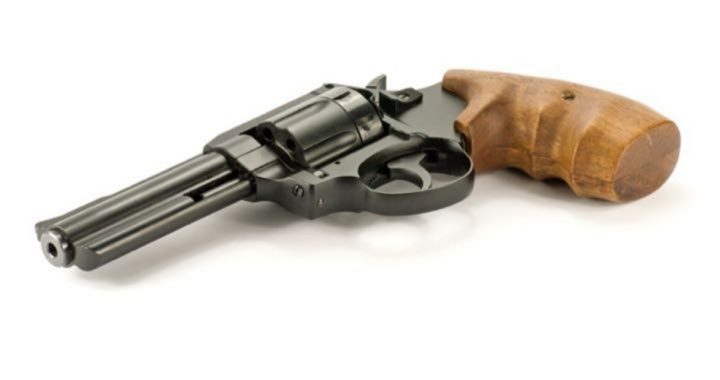
“This is something we’ve been fighting [in favor of] for years,” State Senator Nathan Dahm (R-Broken Arrow) told Fox News on Thursday. Dahm added that he had been fighting for constitutional carry — in which the state recognizes the right of a citizen to keep and bear arms as a constitutional right — since he entered the Oklahoma Senate six years ago. Dahm gained some national recognition, and even more notoriety inside the state a few years ago when he appeared on the Piers Morgan show and ably defended gun rights.
Dahm was the sponsor of Senate Bill 1212, which stipulates that any person 21 and older, and military personnel who are 18 and older, can carry a firearm without a license. The bill passed late Wednesday night, by 33-9, and now goes to Governor Mary Fallin, a Republican, to sign, as the House of Representatives passed the legislation on April 25, by a vote of 59-28. If Fallin signs the bill into law, Oklahoma would become the 12th state to have a constitutional carry law.
Among the chief arguments for the bill was that an individual already has a right to keep and bear arms, protected by the Second Amendment, and this legislation would eliminate the costly and time-consuming permit process.
Dahm is one of the most conservative members of the Oklahoma Legislature, achieving a 98-percent score on the Conservative Index, published by The Oklahoma Constitution newspaper. He is one of several Republicans and Democrats vying to win the Tulsa-area congressional seat being vacated by Congressman Jim Bridenstine. Bridenstine, a Republican, was recently named by President Donald Trump to head NASA.
While Governor Fallin campaigned as a pro-gun rights candidate, her record on signing gun rights bills is mixed, having signed some and vetoed others. While serving as lieutenant governor, Fallin was a strong advocate for all guns being fixed with gun locks. Fallin is in her last year as governor, and has moved steadily leftward during her eight years in the office.
Dahm noted that Fallin has vetoed gun bills in the past, but he is optimistic that she will sign this one. A Democrat who voted against the bill when it passed the House last month, Representative Shane Stone, said he also expects Fallin to sign the bill.
Senator Kevin Matthews (D-Tulsa) asked Dahm during debate if it would be prudent to allow people with no training to carry lethal weapons. Matthews, whose Conservative Index score is 33 percent, made the case that law-enforcement authorities would be in greater danger under Dahm’s legislation. She and other opponents argued that the bill would pose safety issues, posing the scenario that law enforcement might not be able to determine who the criminals were in an active shooting situation.
Matthews said that the state requires a license to drive a motor vehicle, but with Dahm’s bill, no such requirement would exist for firearms. Dahm retorted that a citizen’s right to keep and bear arms is protected by the Second Amendment, while driving is not a constitutionally protected right.
Another senator who spoke against the bill was Kay Floyd of Oklahoma City, a Democrat who has a 22-percent Conservative Index rating. She urged senators to vote the bill down because “a major policy change should not be made at 10:45 p.m. in the evening a few days before sine die [the end of session]. We have not properly vetted this change.” The Oklahoma Legislature is expected to adjourn Friday, raising the possibility that Fallin could choose to “pocket veto” the bill — simply kill the bill by not signing it.
Fallin has made no comment on the bill, but her spokeperson told Fox News that Fallin typically does not comment on pending legislation “until after the final version reaches the governor’s office, and she and her staff have a chance to review it.”
If the bill is signed, firearms would remain prohibited in schools and other government buildings. Private property owners can still refuse to allow guns on the premises, as well.
During debate in the House, Representative Stone asked, “Can you explain to me why I should have to go pay for a license or an identification card in order to carry out my even more fundamental right to vote, but I shouldn’t have to [to] carry a weapon?”
Dahm countered, “There is not another right that requires people to get training and licensing in order to exercise that right,” lamenting that the Second Amendment is “infringed upon the most.”



